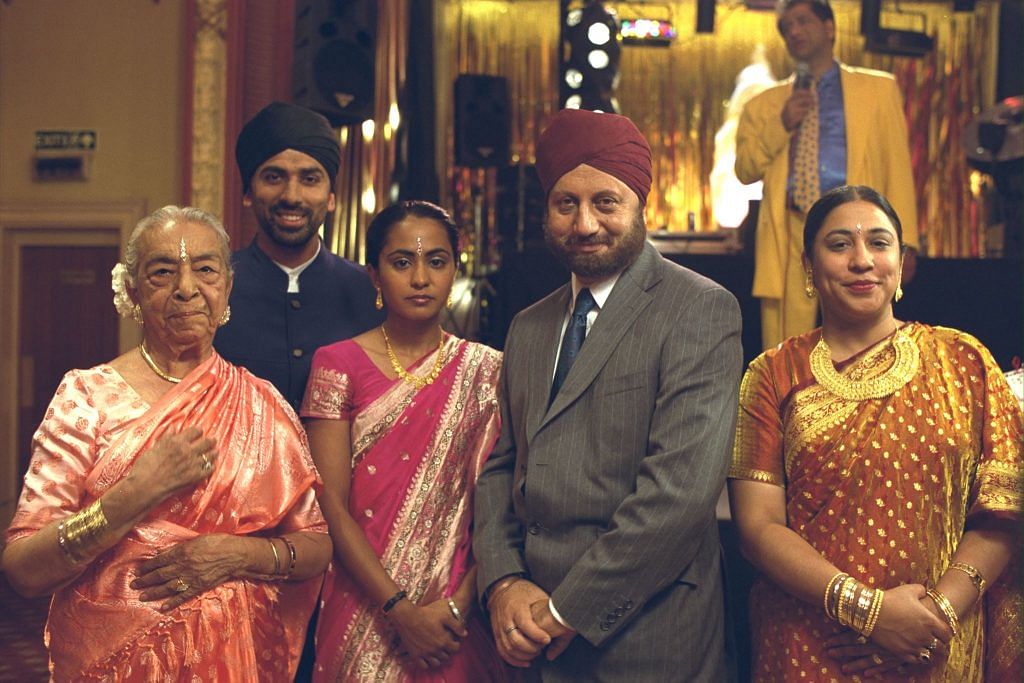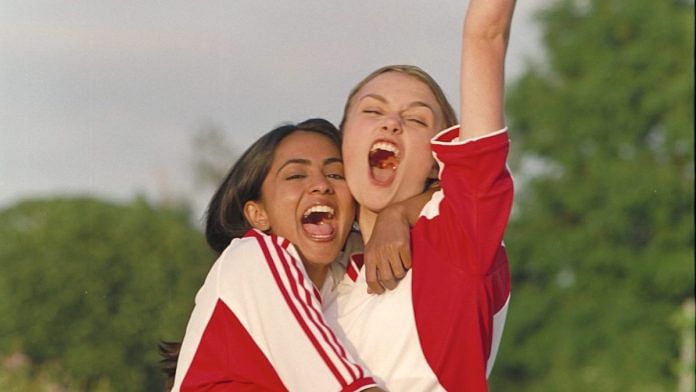Twenty years ago, Gurinder Chadha’s Bend It Like Beckham broke the glass ceiling — for cinema, sports, women, and LGBTQ representation. The 2002 coming-of-age film follows the journey of Jesminder ‘Jess’ Bhamra, a girl from a traditional Sikh family in London whose favourite footballer is David Beckham. Jess plays football against her parents’ wishes, instead of making ‘round’ rotis like her elder, ‘proper’ sister.
The film earned over $100 million and became a cult movie in football across the globe. Five years after the film was first released, the percentage of black, Asian and minority ethnic professionals in English football rose from 22 per cent to 33 per cent. The figure stands at 50 per cent today.
Desi family in London
The film changed the discourse on Brown girls and sports, and South Asian representation in Hollywood. While Bridgerton’s Kate Sharma, played by Simone Ashley, may be all the rage right now, it was Jess played by Parminder Nagra who paved the path for brown skin to be a part of a mainstream Hollywood movie, with all the challenges of being one.
It also highlighted the challenges of being a woman born in London who has to adhere to the subscriptions of desi culture and expectations. The clash of cultures, aspirations and being ‘unusual’ is documented with a rare sensitivity and humour. Who can forget a mostly white women’s football team helping Jess wear a sari for her sister’s wedding?
The movie brings forth the obligations of most South Asian girls in the ’90s and even now, and which are almost never addressed in films meant for Western audiences. The idea that women should put their dreams on hold or have a dream that is ‘suitable’ or not marry and fall in love with an ‘outsider’.
The film did not restrict itself to showing how expectations of brown women and their families. Jess’ friend Jules, played by Keira Knightley, faces similar issues with her mother wanting her daughter to be more feminine. The challenges may not be the same, but they are definitely similar, and it is also why the female solidarity shines through the film.

Also read: What a Vogue cover means for Neeraj Chopra and Indian male athletes
Why Beckham?
While David Beckham’s fame and popularity were already on the rise in the 2000s, the film made him an icon for women, beyond his good looks, dating life with Victoria or brand endorsements. For brown women across the globe, the film brought the possibility of making a career in sports and also learning how to bend it like Beckham. The ace footballer allowed the film to use his name because he wanted more girls to join the game.
Rohan Sharma, a lawyer by profession and an avid football player says, “Anupam Kher plays the typical Indian dad who has a problem with his child opting for sports until she makes it in the end.” This is definitely a common phenomenon in India where sports is usually the ‘backup’ plan, especially if it is not cricket.
The amount of interest the film generated in football, especially among women, is evident in the fact that 20 years later, 3.4million women now play football, as reported by the FA. And the best part is, even if you don’t watch football, you can still watch the movie and have a good laugh.
Yasmin Hussain, a football coach of South Asian heritage, says she probably would not have been in the sports if there was no film like Bend it Like Beckham. It is no secret that being represented is a form of empowerment that women need more than men.
The film’s impact was not restricted to sports alone–it spilled over to aspects like research, documentary-making and panel discussions.
Chadha was unapologetic in showing how desi people behave, and was equally unapologetic in asking for what one deserves, despite not being conventional. As we still grapple with sexism, racism, and homophobia in sports, and lack of equal pay and rampant abuse in women’s soccer, Bend It Like Beckham continues to be a source of hope. And it shows how we can now drop Beckham and maybe instead say, ‘Bend it Like Yasmin’.
Views are personal.




